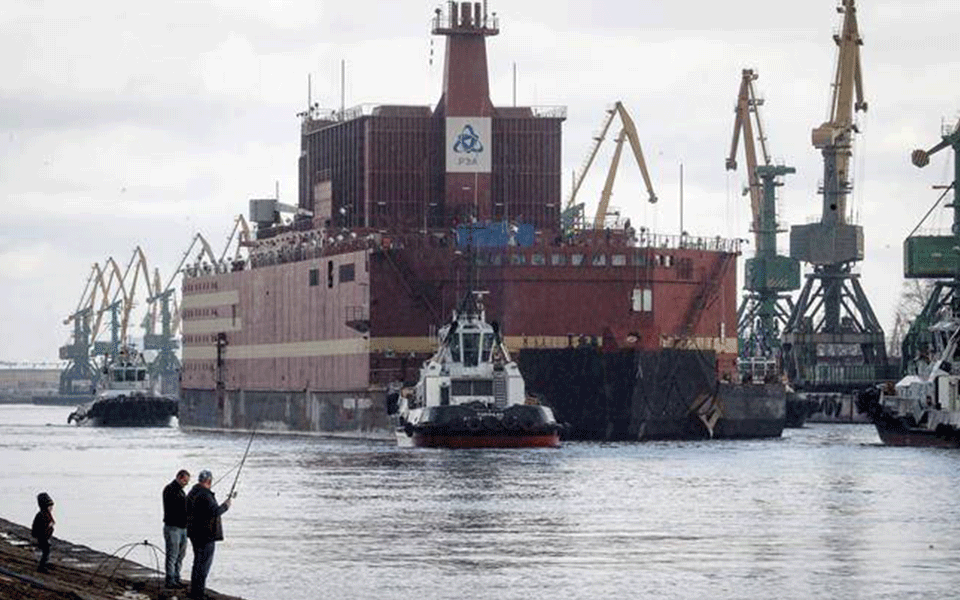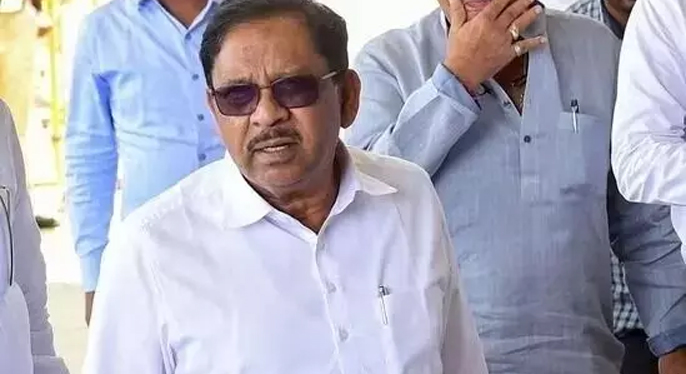St. Petersburg, April 28: Akademik Lomonosov, the world's first "floating" nuclear power plant (FNPP) for installation in remote areas, has headed out on its first sea voyage from this Baltic shipyard here, Russian state-run atomic energy corporation Rosatom said on Saturday.
A statement said the FNPP was towed out of the St. Petersburg shipyard where it was constructed for travel to its final destination to the port of Pevek in Russia's extreme northeastern region of Chukotka.
It is to be towed through the Baltic Sea and around the northern tip of Norway to Murmansk, where its reactors will be loaded with nuclear fuel, said Rosatom, who are the equipment suppliers and consultants for the Kudankulam Nuclear Power Project in Tamil Nadu.
"Akademik Lomonosov will replace Pevek's aging Bilibino Nuclear Power Plant and Chaunsk coal-fired power plant, saving about 50,000 tons of CO2 emissions per year compared to the current levels. Upon its connection to the grid, Akademik Lomonosov will become the northernmost nuclear installation in the world," it said.
The Lomonosov is expected to be put into service in early 2019.
"It is a significant milestone for our project as well as for the world nuclear industry. Floating nuclear power plants will enable electricity and heat supply to the most remote regions boosting growth and sustainable development," Rosatom Director (Construction and Operation of Floating Nuclear Thermal Power Plants) Vitaly Trutnev said in a statement.
An FNPP is basically a mobile, low-capacity reactor unit operable in remote areas isolated from the main power distribution system, or in places hard to access by land. They are designed to maintain both uninterruptible power and plentiful desalinated water supply in remote areas.
The FNPP has a capacity of 70MW and is equipped with two reactors of 35MW each.
Rosatom said that an FNPP's operational life span is 40 years, with the possibility of being extended up to 50 years.
Let the Truth be known. If you read VB and like VB, please be a VB Supporter and Help us deliver the Truth to one and all.
Tumakuru (PTI): Karnataka Home Minister G Parameshwara on Saturday said his recent remarks on the demolition of properties linked to those involved in narcotics trade were "misunderstood and misinterpreted".
His clarification follows remarks made two days ago on the government's uncompromising crackdown on the drug menace, including action against properties linked to foreign nationals allegedly involved in drug trafficking.
"It is unfortunate. It is taken in the wrong sense. I didn't mean that tomorrow itself I am going to send bulldozers and demolish the houses. That was not my intention. It was wrongly taken," he told reporters here.
Responding to Congress MLC K Abdul Jabbar's question in the legislative council on the growing drug menace in Bengaluru, Davangere and coastal districts, the minister on Thursday detailed the extensive enforcement measures initiated since the Congress government assumed office.
Pointing to the involvement of some foreign nationals, the minister had said, "Many foreign students from African countries have come to Karnataka. They are into the drug business. We catch them and register cases against them, but they want the case to be registered because once the case is registered, we cannot deport them."
"We have gone to the extent of demolishing the rented building where they stay," he had said.





